
Trikuta Nagar: The Heart of Modern Jammu
Trikuta Nagar, nestled in the bustling city of Jammu, India, is a vibrant neighborhood that perfectly blends modernity with cultural richness. As you stroll through its well-planned streets, you'll find yourself surrounded by a mix of residential areas, shopping centers, and delightful eateries, all contributing to the neighborhood's dynamic atmosphere. Trikuta Nagar is an excellent gateway to explore the broader region of Jammu. The area is well-connected, making it easy for tourists to access major attractions such as the famous Raghunath Temple and the serene Bahu Fort. Trikuta Nagar itself offers a variety of experiences from shopping in local markets to savoring authentic Dogra cuisine in cozy restaurants. For those interested in local culture, Trikuta Nagar hosts various events and festivals throughout the year, providing a glimpse into the rich traditions of Jammu. The neighborhood's friendly residents and vibrant community life make it a welcoming destination for tourists looking to experience the true essence of Jammu.
Local tips in Trikuta Nagar
- Visit local markets early in the morning for fresh produce and unique souvenirs.
- Try the local Dogra cuisine at small, family-owned restaurants for an authentic culinary experience.
- Use auto-rickshaws or local taxis for convenient and affordable transportation within the neighborhood.
- Attend local festivals and events to immerse yourself in the rich cultural traditions of Jammu.
- Stay hydrated and carry a hat or sunscreen, especially during the summer months.
Trikuta Nagar: The Heart of Modern Jammu
Trikuta Nagar, nestled in the bustling city of Jammu, India, is a vibrant neighborhood that perfectly blends modernity with cultural richness. As you stroll through its well-planned streets, you'll find yourself surrounded by a mix of residential areas, shopping centers, and delightful eateries, all contributing to the neighborhood's dynamic atmosphere. Trikuta Nagar is an excellent gateway to explore the broader region of Jammu. The area is well-connected, making it easy for tourists to access major attractions such as the famous Raghunath Temple and the serene Bahu Fort. Trikuta Nagar itself offers a variety of experiences from shopping in local markets to savoring authentic Dogra cuisine in cozy restaurants. For those interested in local culture, Trikuta Nagar hosts various events and festivals throughout the year, providing a glimpse into the rich traditions of Jammu. The neighborhood's friendly residents and vibrant community life make it a welcoming destination for tourists looking to experience the true essence of Jammu.
Iconic landmarks you can’t miss
Bahu Fort
Explore the majestic Bahu Fort in Jammu, a historical fortress with stunning views and rich cultural significance, perfect for history enthusiasts and travelers alike.
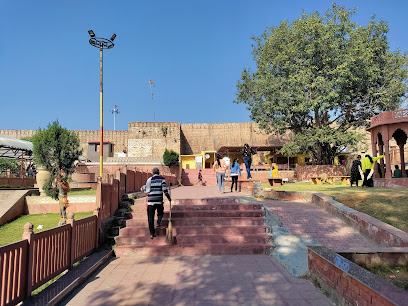
Bagh-E-Bahu
Explore the tranquil Bagh-E-Bahu Park, a blend of natural beauty and historical charm, offering stunning views and a peaceful retreat in Jammu.
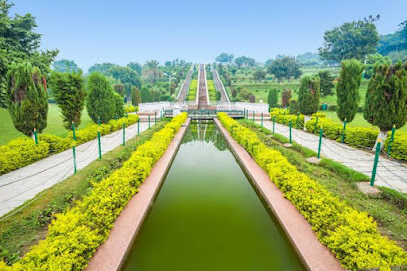
Dudhadhari Mandir
Experience the spiritual serenity of Dudhadhari Mandir, a beautiful Hindu temple in Jammu, rich in culture and architectural splendor.
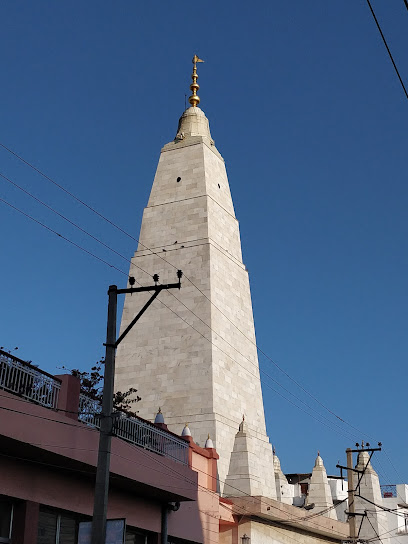
Rope way jammu
Experience the breathtaking views of Jammu and Kashmir from the comfort of the Rope Way Jammu cable car, an unforgettable adventure for every traveler.
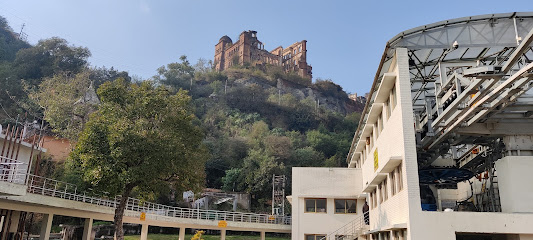
Panch Mandir
Explore the serene beauty and spiritual depth of Panch Mandir, a stunning Hindu temple in Jammu, perfect for cultural immersion and reflection.
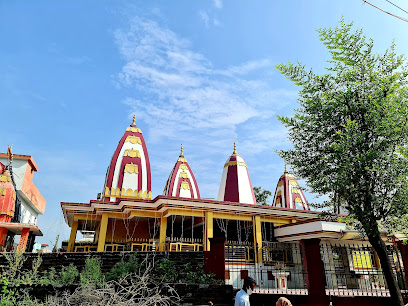
Gurdwara Bala Pritam, Trikuta Nagar
Discover the serene beauty and spiritual essence of Gurdwara Bala Pritam, a must-visit Sikh temple in Trikuta Nagar, Jammu, offering peace and community.
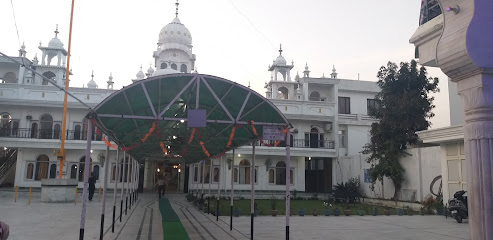
Gol Ghar
Explore the historic Gol Ghar in Jammu, a symbol of cultural heritage and architectural beauty amidst the charm of Old Heritage City.
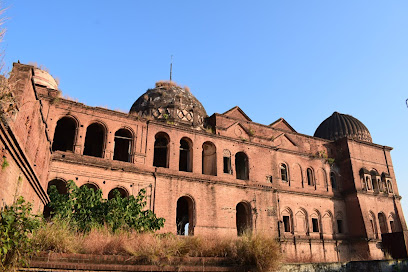
Naag Mandir
Discover the serenity of Naag Mandir, a tranquil Hindu temple in Jammu, perfect for spiritual seekers and cultural enthusiasts alike.
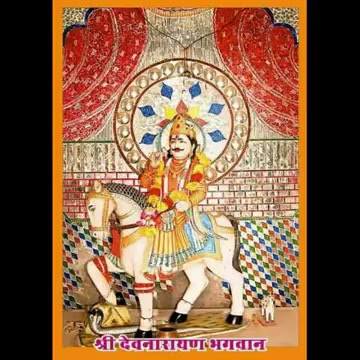
J & K Police Memorial
Explore the J & K Police Memorial, a serene park in Jammu honoring brave police officers amidst tranquil landscapes and reflective spaces.
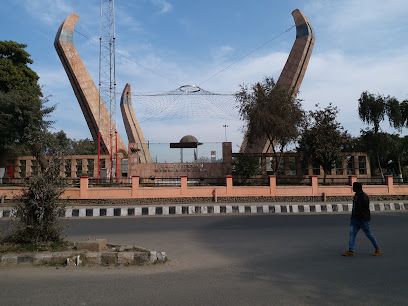
Shri Jagannath Temple
Experience the spiritual essence and architectural grandeur of Shri Jagannath Temple in Jammu, a must-visit for all tourists exploring India's cultural heritage.
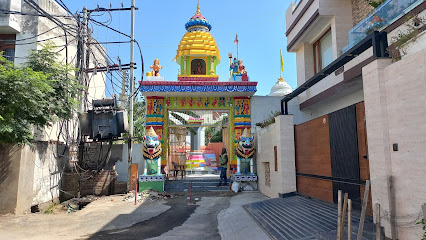
Bahu fort jammu
Explore the historic Bahu Fort in Jammu, a magnificent fortress offering breathtaking views and a glimpse into the rich heritage of Jammu and Kashmir.
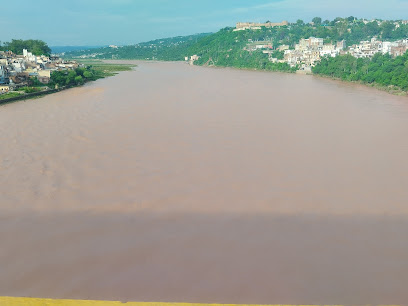
Zorawar Singh Chauk
Explore the vibrant Zorawar Singh Chauk, a cultural gem in Jammu, showcasing rich history, lively markets, and authentic local experiences.
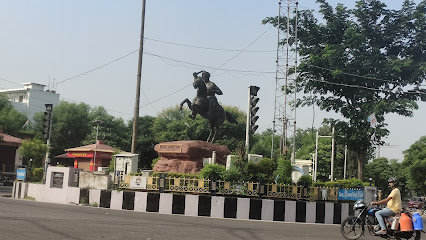
Sukhmehar Tour And Travels
Discover the beauty of Jammu and Kashmir with Sukhmehar Tour And Travels, your trusted partner for unforgettable travel experiences.
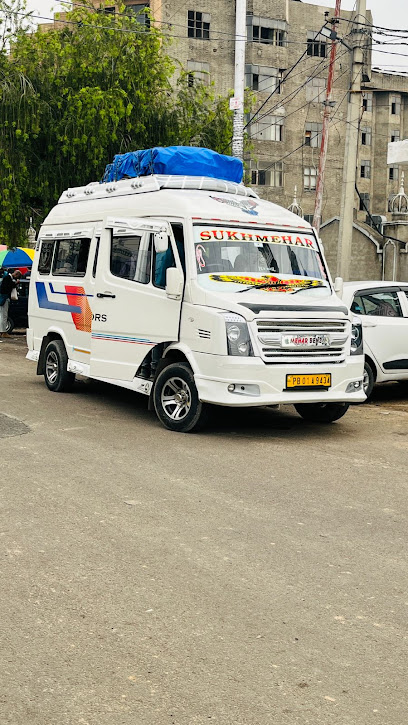
JammutawiRailwaystaion
Discover the cultural richness and historical significance of Jammutawi Railway Station, your gateway to the breathtaking landscapes of Jammu and Kashmir.

Unmissable attractions to see
Manda Zoo Park
Explore Manda Zoo Park: A family-friendly wildlife haven in Jammu, showcasing diverse species and beautiful landscapes for a memorable outing.
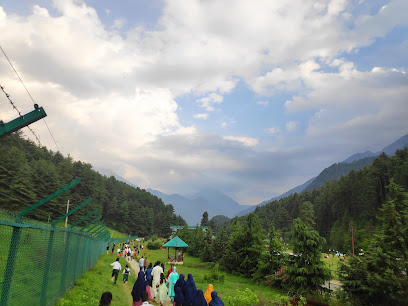
Bahu Fort Park
Explore the serene Bahu Fort Park in Jammu, a perfect blend of nature and history, offering picturesque views and tranquil walking paths.
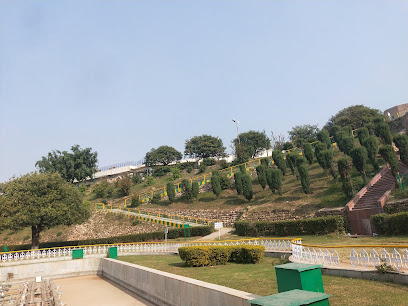
Panch Mandir
Explore Panch Mandir, a serene Hindu temple in Trikuta Nagar, Jammu, where spirituality meets exquisite architecture and lush surroundings.
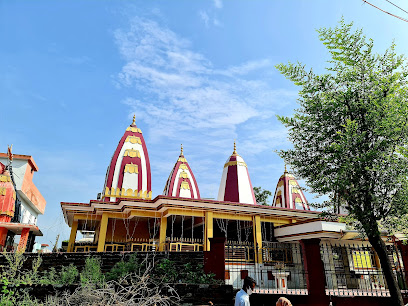
Bahu fort jammu
Explore Bahu Fort in Jammu, a historical fortress offering stunning views and a glimpse into the rich cultural heritage of Kashmir.
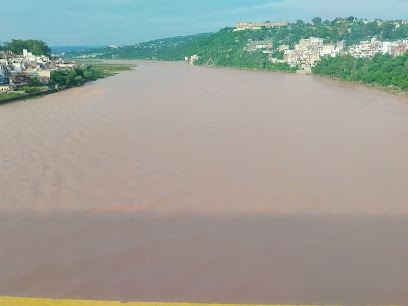
JammutawiRailwaystaion
Explore the stunning landscapes and rich culture of Jammu and Kashmir from the bustling Jammu Tawi Railway Station, your gateway to adventure.

Essential places to dine
Eden - Botanic Kitchen & Bubbly
Experience the fusion of flavors at Eden - Botanic Kitchen & Bubbly in Jammu; where exquisite cuisine meets vibrant ambiance.
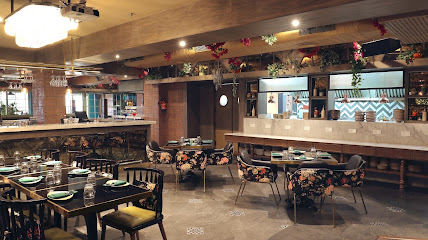
Fun Bytes
Savor delicious hamburgers and fast food delights at Fun Bytes in Jammu - a culinary hotspot for tourists seeking flavorful experiences.
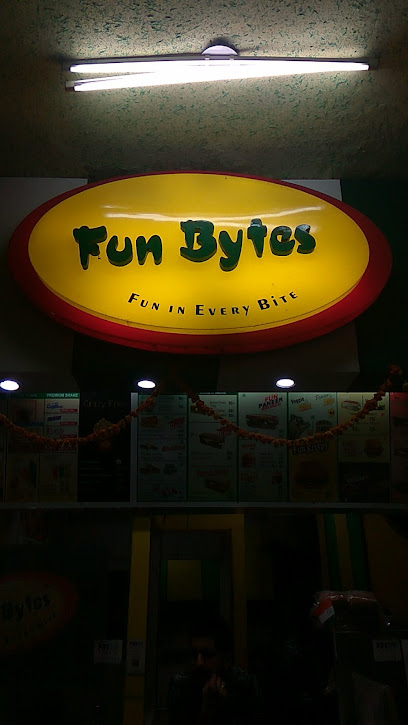
Zaika Restaurant
Experience authentic Kashmiri flavors at Zaika Restaurant in Jammu—where every dish tells a story.
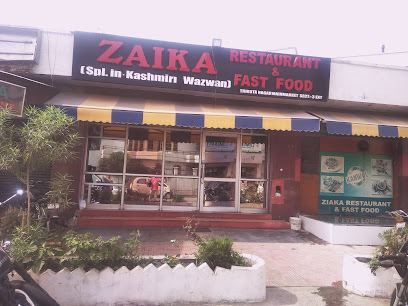
Jan Aahar
Discover the vibrant flavors of India at Jan Aahar - the premier vegetarian restaurant at Jammu Tawi Railway Station.
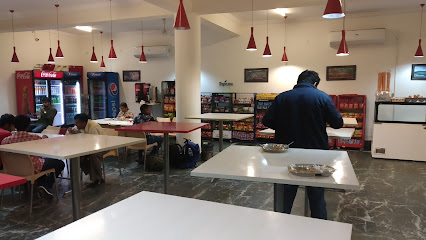
Nai delhi restaurant only halal
Experience authentic halal cuisine at Nai Delhi Restaurant in Jammu, where rich flavors meet warm hospitality.
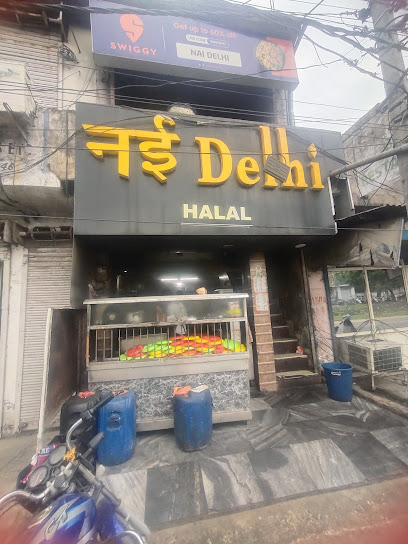
KERALA BHOJANALAYA
Discover authentic South Indian flavors at Kerala Bhojanalaya in Jammu - a delightful dining experience awaits you.

TWO BROTHERS RESTAURANT
Experience delightful fast food at Two Brothers Restaurant in Trikuta Nagar, Jammu - where flavors meet convenience!
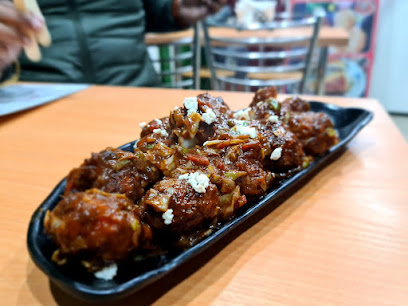
Banana Leaf
Experience authentic Indian cuisine at Banana Leaf in Jammu – where every dish tells a story!
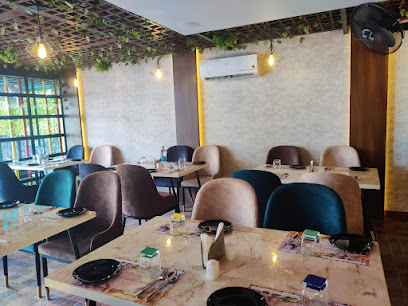
Restaurant
Explore authentic Kashmiri cuisine in Trikuta Nagar; savor rich flavors and local traditions at this charming restaurant.
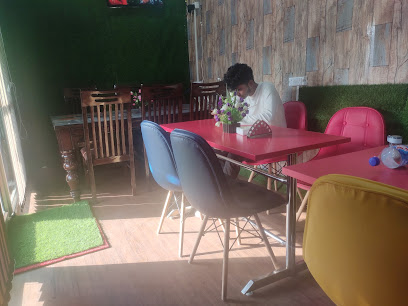
AwsoMealZ
Experience the vibrant flavors of India at AwsoMealZ – a must-visit restaurant in Trikuta Nagar, Jammu offering diverse culinary delights.
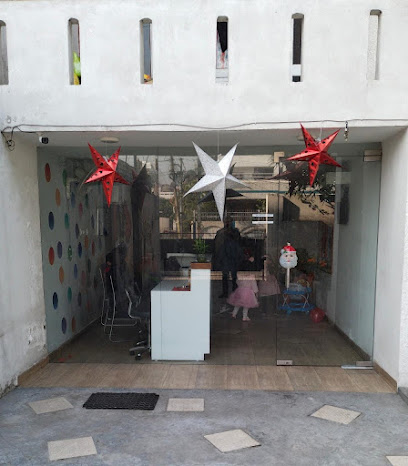
Markets, malls and hidden boutiques
Ethnic Kerala Store
Explore the rich culinary heritage of Kerala at Ethnic Kerala Store in Jammu, offering authentic spices and traditional South Indian groceries.
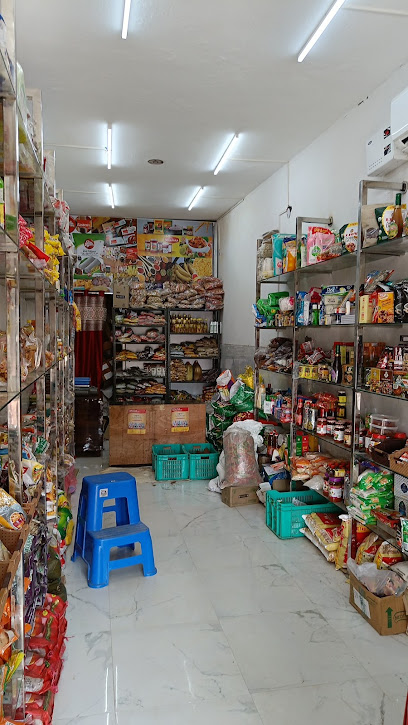
New Neha Boutique
Explore the vibrant fashion scene at New Neha Boutique, offering a blend of traditional and contemporary women's clothing and accessories in Jammu.
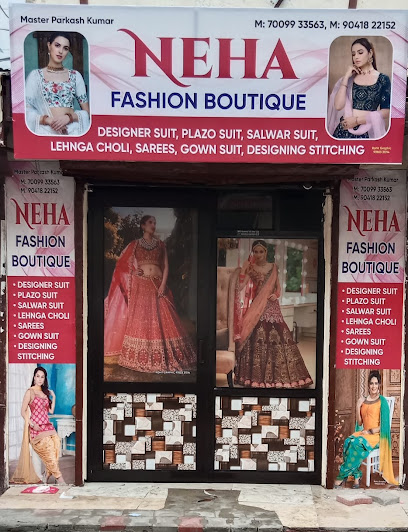
Fancy Collection(Deals in all kinds of Laces,Buttons,Paches etc.))
Explore Fancy Collection in Jammu for an exquisite selection of laces, buttons, and patches that will transform your fashion experience.
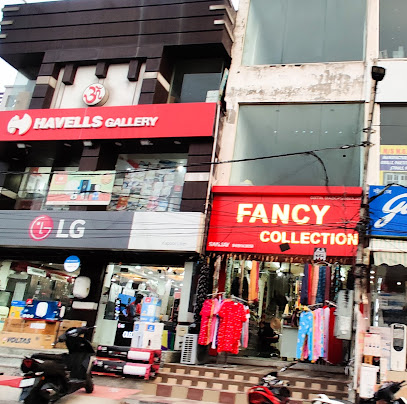
Pehal by shivani
Discover the unique charm of Pehal by Shivani, a boutique in Jammu offering exquisite local fashion and artisan craftsmanship.
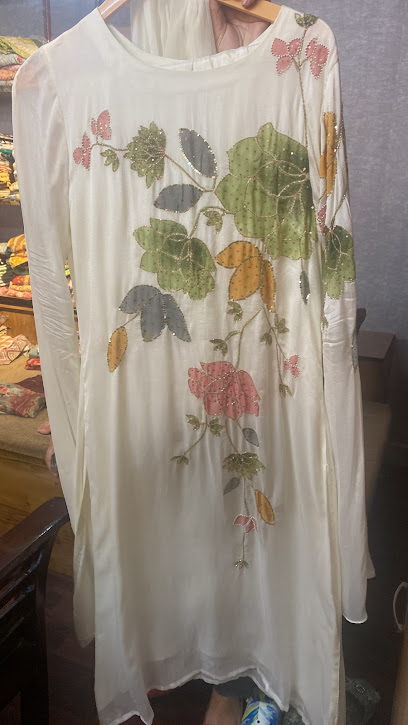
VASTRIKA EXCLUSIVE BOUTIQUE
Discover the charm of traditional and contemporary fashion at VASTRIKA EXCLUSIVE BOUTIQUE in Jammu, a haven for style enthusiasts.

Sai Fancy Dress
Explore the vibrant world of costumes at Sai Fancy Dress in Jammu, where fun meets tradition for every celebration.
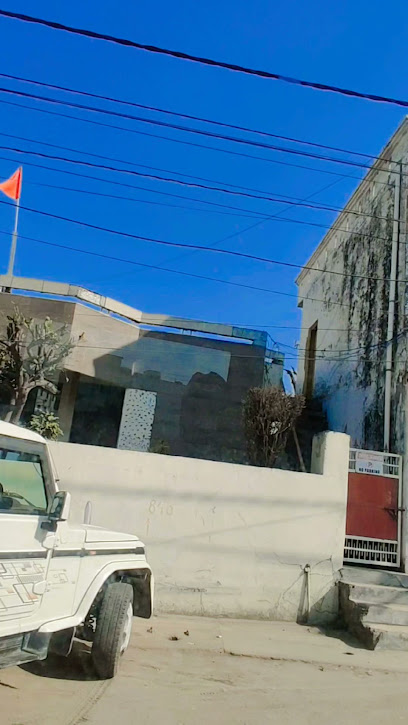
Vasuki Boutique
Discover the beauty of Jammu's craftsmanship at Vasuki Boutique, where tradition meets contemporary fashion in a charming atmosphere.

Khoobsurat Boutique
Discover the essence of Jammu's fashion at Khoobsurat Boutique, where tradition meets contemporary style in an exquisite shopping experience.
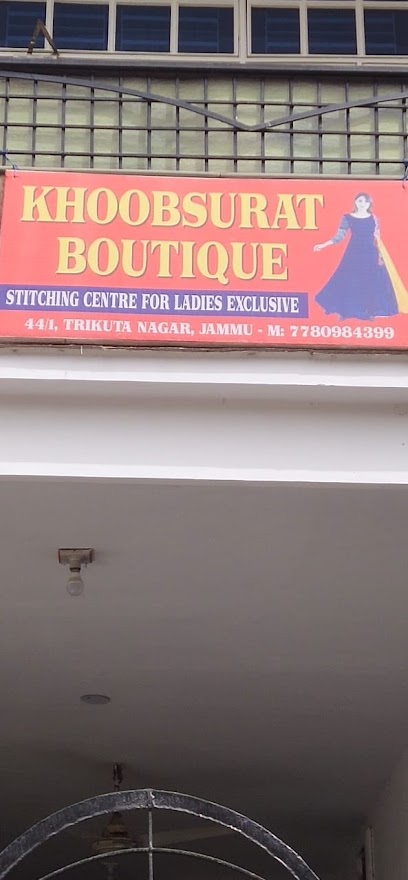
Gift Store
Explore an exquisite selection of local handicrafts and souvenirs at the charming gift shop in Jammu Railway Station.
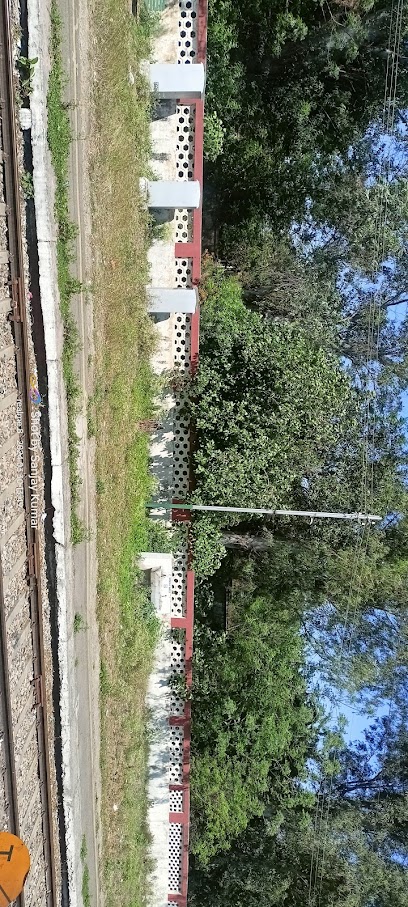
New Trikuta Kashmir Art Emporium
Discover the essence of Kashmiri craftsmanship at New Trikuta Kashmir Art Emporium in Jammu, where every piece tells a story.

Essential bars & hidden hideouts
Nox Cafe & Bar
Discover Nox Cafe & Bar in Jammu - a vibrant nightlife destination for delicious cocktails, diverse cuisine, and unforgettable evenings.
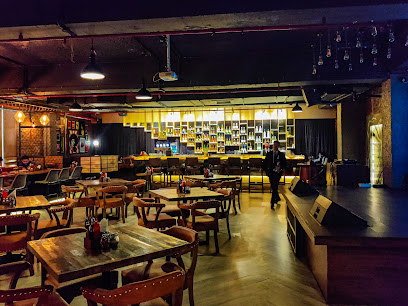
Imperial Grill Restaurant And Legends Pub
Explore the culinary delights of Imperial Grill Restaurant And Legends Pub, where fine dining meets vibrant nightlife in the heart of Jammu.
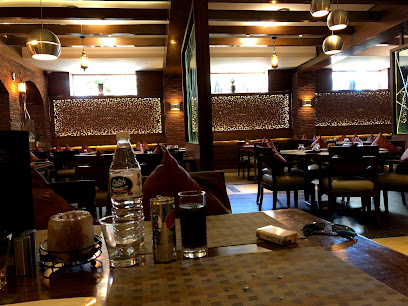
Ministry of Bar (MOB) - Lounge Bar in Jammu
Experience the vibrant nightlife at Ministry of Bar in Jammu, where exquisite drinks and live music create unforgettable moments.
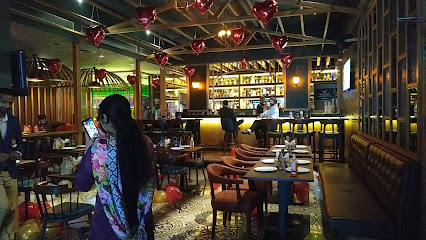
Sahil Bar and Restaurant
Experience the vibrant flavors of Jammu at Sahil Bar and Restaurant, a top grill and bar destination offering delicious cuisine and refreshing drinks.
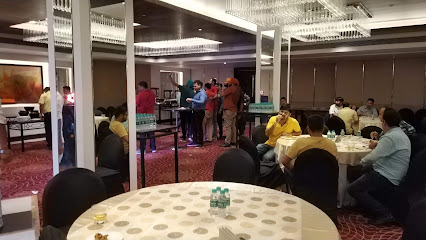
Aabshar Bar
Experience the vibrant nightlife of Jammu at Aabshar Bar, where modern elegance meets local flavor in a lively setting.
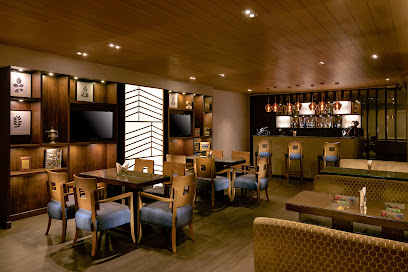
Wild Wild West
Discover the vibrant culinary scene of Jammu at Wild Wild West, where traditional flavors meet modern dining in a unique atmosphere.
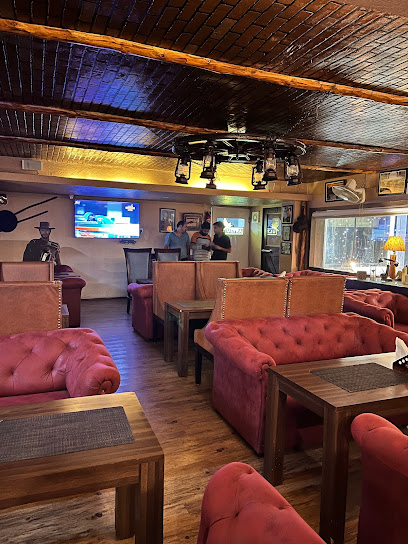
M&N bar and restaurant
Experience the vibrant culinary scene at M&N Bar and Restaurant in Jammu, where delicious food and drinks create unforgettable memories.
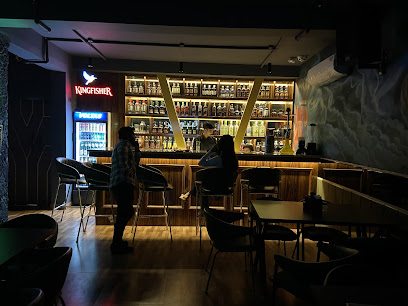
Sakki bar and restaurant
Discover the flavors of Jammu at Sakki Bar and Restaurant, where local dishes meet international cuisine in a cozy setting.

Omnia
Experience the vibrant nightlife at Omnia, Jammu's premier bar offering exquisite drinks and an inviting atmosphere for unforgettable moments.
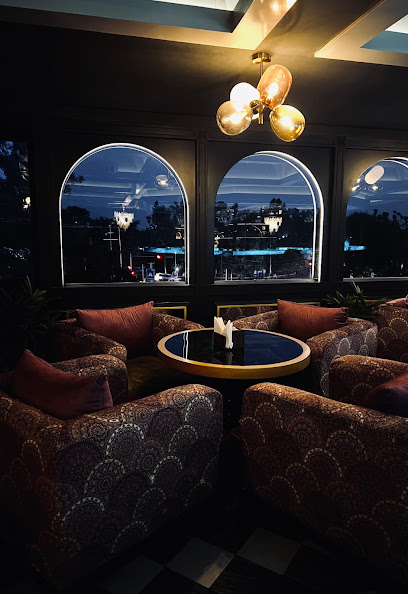
personal
Discover Jammu's vibrant pub scene in Guru Nanak Nagar, where local culture meets delightful drinks and a warm atmosphere.

Local Phrases
-
- Helloनमस्ते
[namaste] - Goodbyeअलविदा
[alvida] - Yesहां
[haan] - Noनहीं
[nahi] - Please/You're welcomeकृपया
[krupaya] - Thank youधन्यवाद
[dhanyavaad] - Excuse me/Sorryमाफ़ कीजिए
[maaf keejiye] - How are you?आप कैसे हैं?
[aap kaise hain?] - Fine. And you?ठीक हूँ। और आप?
[thik hoon. aur aap?] - Do you speak English?क्या आप अंग्रेज़ी बोलते हैं?
[kya aap angrezi bolte hain?] - I don't understandमुझे समझ नहीं आया
[mujhe samajh nahi aaya]
- Helloनमस्ते
-
- I'd like to see the menu, pleaseकृपया मेन्यू देखना चाहूं
[krupaya menu dekhna chahoon] - I don't eat meatमैं मांस नहीं खाता
[main maans nahi khaata] - Cheers!चियर्स!
[cheers!] - I would like to pay, pleaseकृपया मैं भुगतान करना चाहूं
[krupaya main bhugtan karna chahoon]
- I'd like to see the menu, pleaseकृपया मेन्यू देखना चाहूं
-
- Help!मदद!
[madad!] - Go away!चले जाओ!
[chale jao!] - Call the Police!पुलिस को बुलाओ!
[police ko bulaao!] - Call a doctor!डॉक्टर को बुलाओ!
[doctor ko bulaao!] - I'm lostमैं खो गया/गई हूँ
[main kho gaya/gayi hoon] - I'm illमुझे बीमारी है
[mujhe bimari hai]
- Help!मदद!
-
- I'd like to buy...मैं खरीदना चाहूंगा/चाहूंगी...
[main khareedna chahunga/chahungi...] - I'm just lookingमैं बस देख रहा/रही हूँ
[main bas dekh raha/rahi hoon] - How much is it?यह कितना है?
[yah kitna hai?] - That's too expensiveयह बहुत महंगा है
[yah bahut mahnga hai] - Can you lower the price?क्या आप कीमत कम कर सकते हैं?
[kya aap keemat kam kar sakte hain?]
- I'd like to buy...मैं खरीदना चाहूंगा/चाहूंगी...
-
- What time is it?अब कितने बजे हैं?
[ab kitne baje hain?] - It's one o'clockएक बजे हैं
[ek baje hain] - Half past (10)दस बजे तकरीबन
[das baje takreeban] - Morningसुबह
[subah] - Afternoonदोपहर
[dopahar] - Eveningशाम
[shaam] - Yesterdayकल
[kal] - Todayआज
[aaj] - Tomorrowकल
[kal] - 1एक
[ek] - 2दो
[do] - 3तीन
[teen] - 4चार
[chaar] - 5पाँच
[paanch] - 6छह
[chhe] - 7सात
[saat] - 8आठ
[aath] - 9नौ
[nau] - 10दस
[das]
- What time is it?अब कितने बजे हैं?
-
- Where's a/the...?...कहाँ है?
[...kahan hai?] - What's the address?पता क्या है?
[pata kya hai?] - Can you show me (on the map)?क्या आप मुझे दिखा सकते हैं (नक्शे पर)?
[kya aap mujhe dikha sakte hain (naksha par)?] - When's the next (bus)?अगली (बस) कब है?
[agli (bus) kab hai?] - A ticket (to ....)एक टिकट (.... के लिए)
[ek ticket (... ke liye)]
- Where's a/the...?...कहाँ है?
History of Trikuta Nagar
-
Trikuta Nagar, situated in the southern part of Jammu, derives its name from the sacred Trikuta Mountains, which house the revered Vaishno Devi Temple. The area reflects the historical significance of the region, often associated with ancient Hindu scriptures and the epic Mahabharata. Over time, it evolved from a rural landscape into a bustling residential locality, reflecting the broader urban development trends witnessed in Jammu.
-
Trikuta Nagar is a vibrant amalgamation of various cultures and communities. Over the decades, it has witnessed an influx of migrants from different parts of India, particularly during the exodus of Kashmiri Pandits in the late 20th century. This influx has enriched the local culture, evident in the diverse festivals celebrated, including Diwali, Navratri, and Eid, which showcase the harmonious coexistence of communities.
-
The proximity of Trikuta Nagar to the Vaishno Devi Temple, one of the most important pilgrimage sites in India, has shaped its cultural landscape. The temple attracts millions of devotees annually, significantly influencing local economy and tourism. The reverberations of religious practices, rituals, and festivals permeate the neighbourhood, making it a focal point for spiritual gatherings.
-
In recent years, Trikuta Nagar has transformed into a prominent urban hub within Jammu. The establishment of educational institutions, healthcare facilities, and commercial establishments has contributed to its rapid development. The neighbourhood stands as a testament to Jammu's urbanization, accommodating a growing population while maintaining its cultural ethos.
-
Trikuta Nagar showcases a blend of modern architecture and traditional designs. Residential buildings often incorporate elements from Jammu's historic architectural styles, reflecting the region's rich heritage. The layout of the neighbourhood, with wide streets and green spaces, is indicative of contemporary urban planning interwoven with local cultural aesthetics.
Trikuta Nagar Essentials
-
Trikuta Nagar is well-connected to the rest of Jammu. If you are arriving by train, the nearest railway station is Jammu Tawi, which is about 6 kilometers away. From the station, you can take an auto-rickshaw or a taxi to reach Trikuta Nagar. Local buses also operate from various parts of Jammu, making it accessible from neighborhoods like Gandhi Nagar and Janipur. If you are coming from Jammu Airport, you can hire a taxi or use ride-sharing apps, which will take approximately 15-20 minutes to reach Trikuta Nagar.
-
Trikuta Nagar is relatively small, making it easy to explore on foot. Auto-rickshaws and cycle-rickshaws are popular for short distances; they are affordable and readily available. For longer distances, local buses and shared taxis can be used. If you prefer a more personal touch, renting a bicycle is a great way to see the area and interact with locals. However, ensure you adhere to local traffic rules and stay safe while cycling.
-
Trikuta Nagar is generally considered safe for tourists, but standard precautions should be taken. Avoid walking alone late at night, especially in poorly lit areas. While there are no specific high-crime zones targeting tourists, it's wise to remain vigilant, particularly in crowded markets and public transport. Be cautious of pickpockets and always keep your belongings secure.
-
In case of an emergency, dial 100 for police assistance or 102 for ambulance services. The local hospitals are equipped to handle emergencies, with some English-speaking staff available. It is advisable to have travel insurance that covers medical emergencies. Pharmacies are accessible for minor health issues, and they typically carry basic medications.
-
Fashion: Do dress modestly, especially when visiting temples and religious sites. Avoid overly revealing clothing. Religion: Do respect local customs; it's customary to remove shoes before entering temples. Public Transport: Do be courteous to fellow passengers and give up your seat for the elderly. Don't eat or drink on public transport. Greetings: Do greet people with 'Namaste' and a slight bow of the head. Eating & Drinking: Do try local dishes and beverages, but avoid drinking tap water. Don't refuse food offerings as it may be deemed impolite.
-
To experience Trikuta Nagar like a local, visit the local markets, where you can find fresh produce, handicrafts, and street food. Engage in conversations with local shopkeepers and residents; they often share interesting stories about the area. Visit the nearby Raghunath Temple and explore the serene parks for a relaxing day. Try to attend local festivals or events to immerse yourself in the culture and community spirit. Always carry cash, as some local vendors may not accept credit or debit cards.
Nearby Cities to Trikuta Nagar
-
Things To Do in Sialkot
-
Things To Do in Gujranwala
-
Things To Do in Amritsar
-
Things To Do in Lahore
-
Things To Do in Murree
-
Things To Do in Rawalpindi
-
Things To Do in Islamabad
-
Things To Do in Faisalabad
-
Things To Do in Manali
-
Things To Do in Abbottabad
-
Things To Do in Kaghan
-
Things To Do in Naran
-
Things To Do in Shimla
-
Things To Do in Leh
-
Things To Do in Skardu










